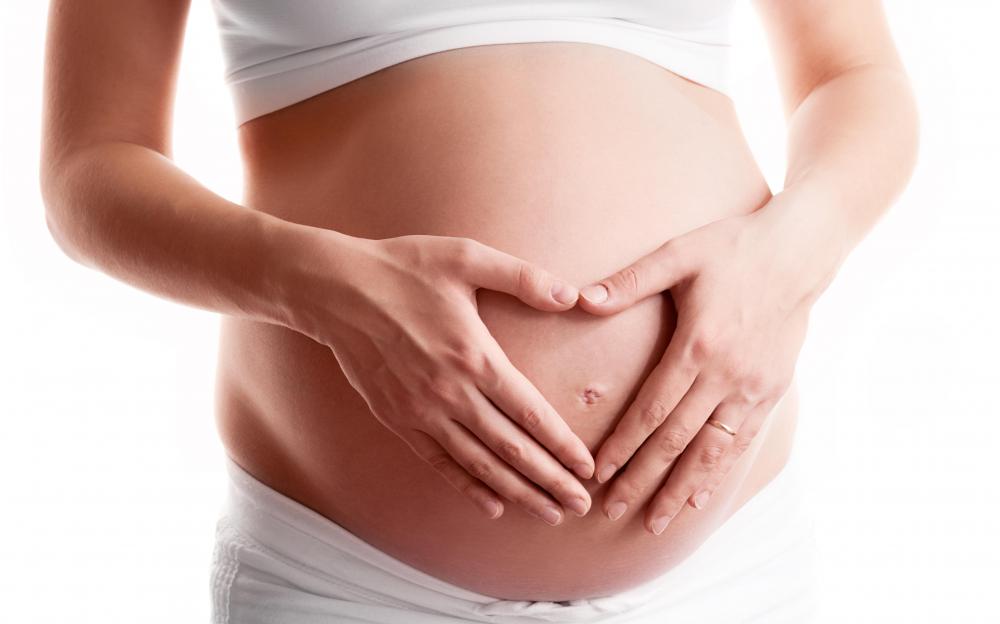At WiseGEEK, we're committed to delivering accurate, trustworthy information. Our expert-authored content is rigorously fact-checked and sourced from credible authorities. Discover how we uphold the highest standards in providing you with reliable knowledge.
What are the Common Causes of Having No Menstruation?
The most common causes of no menstruation or amenorrhea occur before a young woman has gotten her first period (menarche) or after she has gone through either natural or surgical menopause. After menarche and before menopause, another usual life change may result in amenorrhea: pregnancy. Barring these three most common causes, other causes of amenorrhea include: extreme exercise or weight loss, heavy stress or depression, thyroid conditions, polycystic ovarian syndrome, hormonal birth control pills, and other medications.
Amenorrhea is defined as the absence of a monthly period, and it’s usually only defined when periods have been absent for several months. A single episode of skipping or having a very late period, isn’t necessarily included under amenorrhea’s definition, though this experience occurs in most women, often at times of great stress or transition. Given that pregnancy is a common explanation for amenorrhea, women who are sexually active should verify if they have no menstruation that pregnancy isn’t the cause.

As stated, the three common causes of no menstruation are being pre-menarche, having reached menopause, or being pregnant. Women who nurse exclusively may continue not to be period-free for months after pregnancy. This varies, and some nursing women quickly return to a monthly cycle, while others could continue to have no menstruation for six months to a year. It is possible to get pregnant again without a period returning first, so breastfeeding shouldn’t be viewed as reliable birth control.

There are studies linking extreme activity, such as that engaged in by competitive athletes as a potential cause of no menstruation. Very low body fat from athleticism or from extreme dieting or famine may cause the ovaries to stop ovulating. Women have also reported several months of missed periods during stress or heavy depression.
Other things may interfere with the menstrual cycle. Untreated hypothyroidism may cause no menstruation, as can benign growths on the pituitary gland. Hormonal birth control causes periods to cease too, although there may still be monthly “bleeding.” The bleeding doesn’t represent menstruation after ovulation, and is thus not a period.

There are different medications that may impair ovarian function, aside from hormonal birth control. These include some psychiatric medications, some steroids, and many chemo drugs. Any of these may briefly or for long periods create no menstruation. Removal of the ovaries for any reason, dysfunction created by polycystic ovarian syndrome, or congenital lack of ovaries may be possible explanations for why menstruation isn’t occurring.
Since in most cases it is common to have a monthly period, episodes of no menstruation extending beyond a month deserve explanation. Women are advised to seek assistance from a doctor, preferably a gynecologist, if periods have ceased.
AS FEATURED ON:
AS FEATURED ON:














Discussion Comments
Hormonal imbalances can affect menstruation this way too. That's actually how birth control works. It prevents menstruation by making the body think that it's pregnant. If hormonal imbalances occur naturally, that will also affect menstruation.
@candyquilt-- You are right but like the article said, health problems can cause menstruation to stop as well.
I have a thyroid disorder called hypothyroidism which causes my menstruation to stop. Even before this, I would have very short and almost nonexistent periods when I was sick or stressed. So there are many factors that affect menstruation and sometimes one doesn't realize how disrupted the cycle is until after several months.
I have a friend who didn't realize she was pregnant until she was three months along. I asked her whether she was getting periods during this time and she said no. How can anyone miss that this is a sign of pregnancy?! It's not normal to not have periods unless someone uses birth control. Women should be keeping track of their periods and when they occur. I always mark on my calendar when I get my period so that I can assess whether it's on time or late every month.
Post your comments